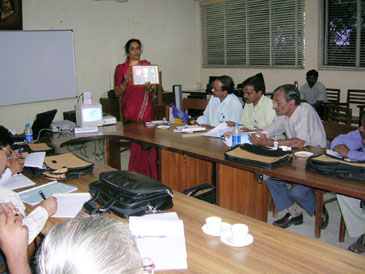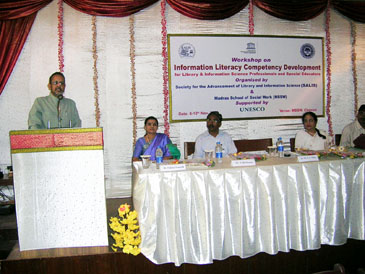| |
|
| Training trainers to enhance information literacy for persons with disabilities The information literacy competency of a group of Indian special educators and library professionals working in special institutions for the disabled has recently been considerably increased thanks to a Workshop that was organized at Madras School of Social Work (MSSW). |
News |
The information literacy competency of a group of Indian special educators and library professionals working in special institutions for the disabled has recently been considerably increased thanks to a Workshop that was organized at Madras School of Social Work (MSSW).
The 5-day Workshop, that was held from 6 to 10 November 2006, was organized by MSSW, together with the Society for the Advancement of Library and Information Science (SALIS) and in collaboration with UNESCO.
It was designed to:
The workshop was conducted by experts from information services as well as special education fields. A total of 30 participants from different states of India had taken active participation in this event. As a direct outcome of this Workshop, SALIS will develop an e-Learning solution on ‘Information Literacy Competency Development for Special Educators and Library Professionals’ for the wide dissemination of knowledge across the world. This online e-learning portal will be developed using Moodle learning management system. The modules of this e-learning portal will be similar to the workshop content. 
Ms Vijayalakshmi
© UNESCO Office in New Delhi 
Mr Mani
© UNESCO Office in New Delhi Related themes/countries
· India · Information and Media Literacy: News Archives 2006 · People with disabilities and ICT: News Archives 2006 |
Contact information
Source
Field office
Related Links
More resources
|
|
portal1.org we are portal 1 Community of Practice Software Solutions - Powered by Tomoye Simplify Version 3:01b |
UNESCO-CI
Have feedback? Email the Chief Editor Portal Statistics: 23292 knowledge objects - 6499 topics |
||